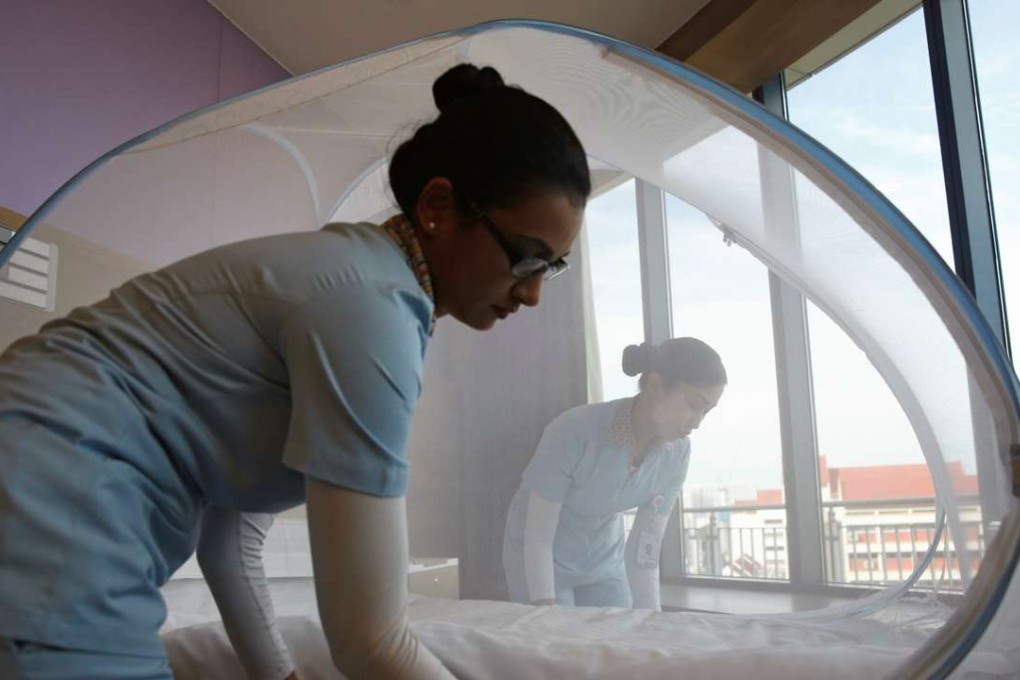How strong is Singapore’s safety net against the Zika virus?
City state’s swift action has been praised, but tropical weather, population density and question marks over construction practices raise fears of a long fight ahead

Singapore is basking in the global limelight as it hosts the Formula One Grand Prix this weekend but behind the razzmatazz the city-state’s stand-off with Zika continues as medical experts and officials warn the virus is here for the long haul – much like dengue, which continues to fester and pose a persistent danger.
Zika has been detected in more than 300 people in Singapore since the first locally transmitted case was detected on August 27, making the financial and transit hub the single largest beachhead for the mosquito-borne virus in Asia.
Eight pregnant women among 329 infected by Zika in Singapore
As new cases slowed last week after initially soaring in early September, observers including the World Health Organisation (WHO) lauded the government’s swift identification of infection clusters and effective dissemination of information to the public.

That in part has allayed fears the crisis will mirror the outbreak of Severe Acute Respiratory Syndrome (SARS) in 2003, which killed 33 people out of 238 infections and brought the economy to a standstill.
But some experts say lax controls on mosquito breeding in construction sites – where hundreds of thousands of South Asian and mainland Chinese migrant labourers ply their trade – need to be urgently rectified.